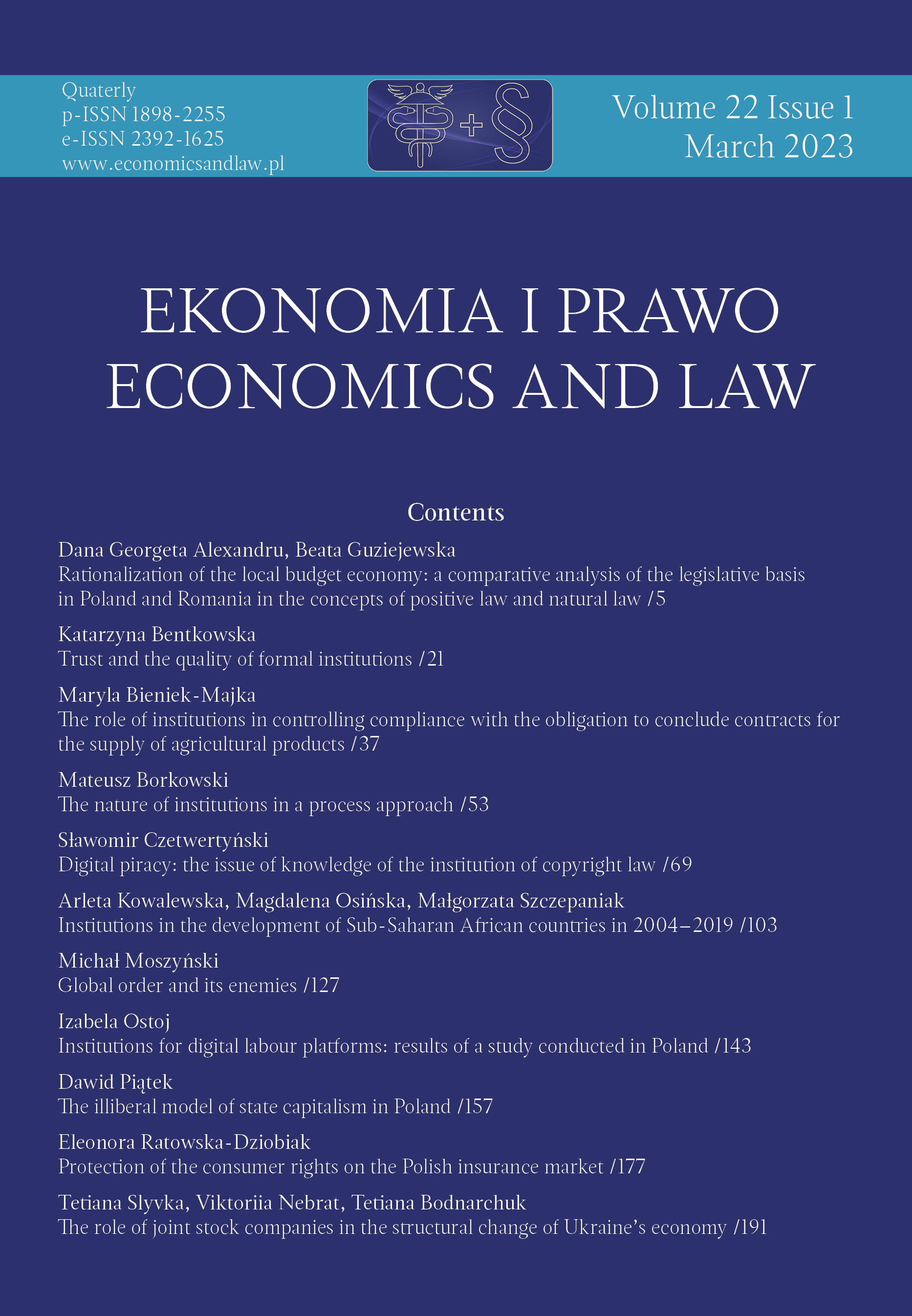The role of institutions in controlling
compliance with the obligation
to conclude contracts for the supply
of agricultural products
The role of institutions in controlling
compliance with the obligation
to conclude contracts for the supply
of agricultural products
Author(s): Maryla Bieniek-MajkaSubject(s): Agriculture, Public Law
Published by: Wydawnictwo Naukowe Uniwersytetu Mikołaja Kopernika
Keywords: New Institutional Economics; contract; information asymmetry; agriculture; The National Center for Agricultural Support (KOWR);
Summary/Abstract: Motivation: In order to protect the interests of farmers (agricultural producers) in 2015an obligation to conclude contracts for the supply of agricultural products was introduced,and since 2017 has been in force to impose fines on buyers of agricultural products if theypurchase without a contract or if the contract is defective. The National Center for Ag-ricultural Support (KOWR) is an institution whose tasks include control of compliancewith this law. Observation of transactions in agriculture allows us to believe that the es-tablished legal regulations do not solve the problem of abuse of market power by recipientsand the institutional solution does not shape economic processes.Aim: The aim of this article is to present the activity of the KOWR as an institution con-trolling the observance of the obligation to conclude contracts for the supply of agricultur-al products and its evaluation.Results: Analysis of the KOWR’s reports showed that between February 2017 and March2022, a total of 465 controls were carried out, resulting in fines of PLN 6 670 428,19 forpurchases of agricultural products without a contract or due to a defective contract (about93% of this amount was imposed on purchasers in 2021). The relatively small numberof checks carried out is due to the lack of complete information on the actual purchaserof agricultural products who is obliged to purchase agricultural products under contract.In the analyzed period, inspections were carried out based on notifications of suspectedbreach of contractual obligations and at market entities designated for inspection (mainly milk purchasers). In conclusion information asymmetries on the market for agriculturalproducts do not only occur in “classical” forms. Incomplete information may be availa-ble to both parties, but also from the body responsible for monitoring compliance withthe rules governing the conclusion of such transactions.
Journal: Ekonomia i Prawo. Economics and Law
- Issue Year: 22/2023
- Issue No: 1
- Page Range: 37-52
- Page Count: 16
- Language: English

